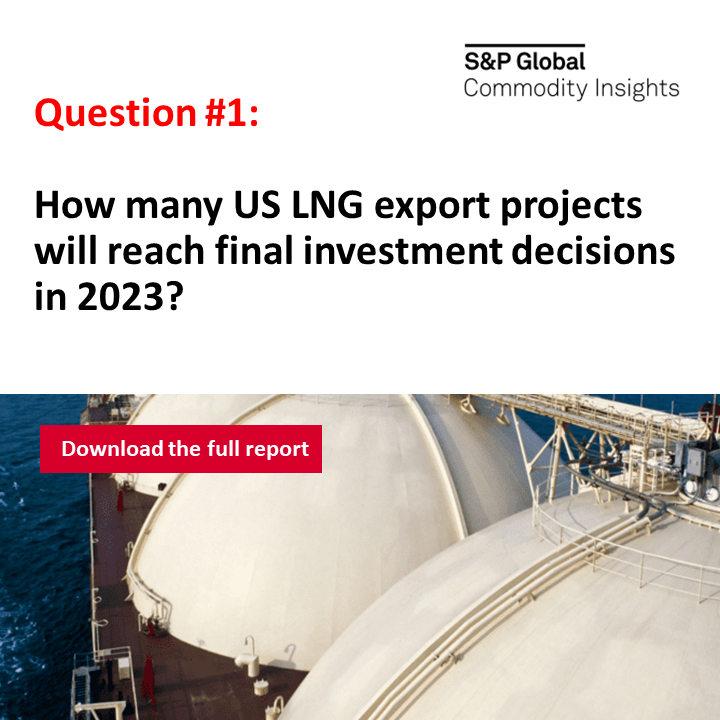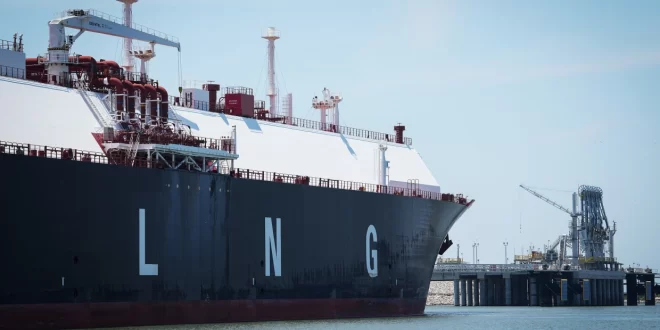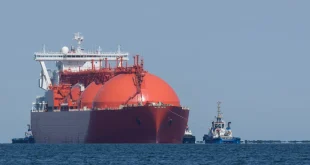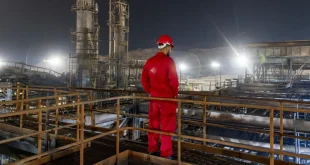Biden’s LNG freeze makes little sense from both European and the US energy security perspectives. It won’t promote a green energy transition. Most energy experts acknowledge that LNG is the principal bridge fuel necessary for a green future. And if American LNG is not readily available, it will be replaced by less regulated, less transparent, and less friendly foreign competitors.
For years, Europe was increasingly the primary consumer of piped Russian natural gas and its LNG. Sourcing from Russia was cheap and, thus, a win-win. Some may have thought that Russia’s economic entanglement with Europe would even encourage relatively good behavior from the Kremlin.
Russia’s 2022 invasion of Ukraine put an end to this dynamic, ushering in an era of US LNG dominance. While still in its infancy, the American advantage is already under threat, due in large part to a recent self-inflicted wound: a decision on the part of the Biden Administration that will impede the continued growth of American LNG exports. To export LNG, one must build export terminals that cost $ billions. Without these, exporting LNG is impossible, so the administration’s decision to pause permitting LNG export projects could significantly damage the growing American LNG industry.
| Advertisement:https://www.youtube.com/embed/xwM3TUGy3xUThe National Gas Company of Trinidad and Tobago Limited (NGC) NGC’s HSSE strategy is reflective and supportive of the organisational vision to become a leader in the global energy business.ngc.co.tt |

Europe is already searching for a quick fix from other LNG suppliers. Unfortunately, none of the candidates are geopolitically palatable. Suppliers like Qatar live amid geopolitical conflict, while Nigeria, Congo, and Mozambique are chronically unstable. With Russian aggression unlikely to cease, Europe needs US LNG more than ever.
Since the Russian invasion, Europe has relied on LNG for 30-50 % of its gas supply. Replacing these massive imports with green technologies is unrealistic in the short term. Europe lacks solar and wind energy potential relative to other geographic areas, while it is simultaneously turning away from nuclear power. Europe would have to rely on expensive batteries to compensate to make up for the gaps in wind and solar energy supply.
Current lithium-ion batteries won’t do the trick, as lithium itself is not very energy-dense and thus incapable of storing sufficient charges. Europe needs a backup that is not variable, intermittent, or weather-dependent. In theory, nuclear and coal could fit the bill, but safety climate change considerations have made these unpalatable. Only piped natural gas or LNG can serve as a viable bridge fuel to provide the much-needed baseload.
US LNG offers many advantages, like pricing and destination flexibility. Other suppliers do not offer such terms. For instance, Qatar usually insists on inflexible long-term contracts that lock in buyers. Due to climate concerns, buyers may be reluctant to sign on for fear of involving themselves in long-term fossil fuel dependence, to say nothing about possible complications due to political instability fueled by nearby Iran. American LNG is a bridge fuel that does not need to outstay its welcome to be commercially viable. Small wonder that many Europeans are concerned about Biden’s decision.
At first, Europe had to depend on ad-hoc measures to deal with its sudden gas shortage. Most EU countries provided subsidies as businesses and consumers struggled with rising electricity bills. If US LNG becomes less abundant in the future, a redo of this scenario is foreseeable. A depletion of European coffers is not in America’s interest, nor is it in Europe’s, especially when slow growth, fiscal strain, and inflation remain pressing concerns.
Some European companies, like the MET Group, are trying to avoid a worst-case scenario by signing US contracts with suppliers like Commonwealth LNG. However, if the US does not rethink its sudden policy shift, European buyers could pursue other suppliers in the future.
Despite the administration’s current missteps, ongoing projects still augment the US’s export capacity and there is time to adjust course. This is good news, as even with declining EU gas consumption, the global LNG demand will grow, suggesting a market for US LNG.
Not everyone in the US supports the administration’s decision, concerned that it will weaken US national and economic security. Hindering licensing and approvals, the pause in permitting will disrupt long-term exports if investors become more risk averse. Fewer sales would harm US GDP growth and employment. Risk-aversion could also transfer to Europe and dampen enthusiasm for investments in LNG-receiving infrastructure, such as regasification plants. Building these assets, which often involve lengthy environmental analyses, already takes significant time. Adding another layer of complexity only serves to make receiving infrastructure projects less attractive.
Unlike the US, others are not handicapping themselves. Qatar sees the opportunity and is accelerating its LNG growth. Already a top producer alongside the US, Australia, and Russia, Qatar’s increased capacity will position it to meet rising demand from Europe seeking alternatives to Russian gas while growth from Asian giants like China, Japan, and South Korea buttresses demand.
More LNG on the market means fewer price spikes. Because LNG markets operate on a global basis, supply shortfalls affect everyone. Typically, when this happens, prices skyrocket. Avoiding this is paramount, as it creates haves and have-nots, where only the highest bidders can satisfy their needs.
While energy prices in some European countries, like Germany, remain surprisingly low, this is unlikely to persist. Thus, betting on the current price equilibrium enduring without more American supply makes little sense. Low gas prices this winter won’t negate the need for long-term LNG contracts to stabilize German prices, Joerg Selbach-Roentgen, head of MET Group’s Germany branch, stressed earlier in the year. While current market conditions make long-term contracts less attractive, LNG remains crucial for stabilizing prices against volatility, especially spot sales. Selbach-Roentgen also mentioned challenges in securing these contracts, including collateral requirements and discussions around contract length.
Biden’s LNG freeze makes little sense from both European and the US energy security perspectives. It won’t promote a green energy transition. Most energy experts acknowledge that LNG is the principal bridge fuel necessary for a green future. And if American LNG is not readily available, it will be replaced by less regulated, less transparent, and less friendly foreign competitors.





